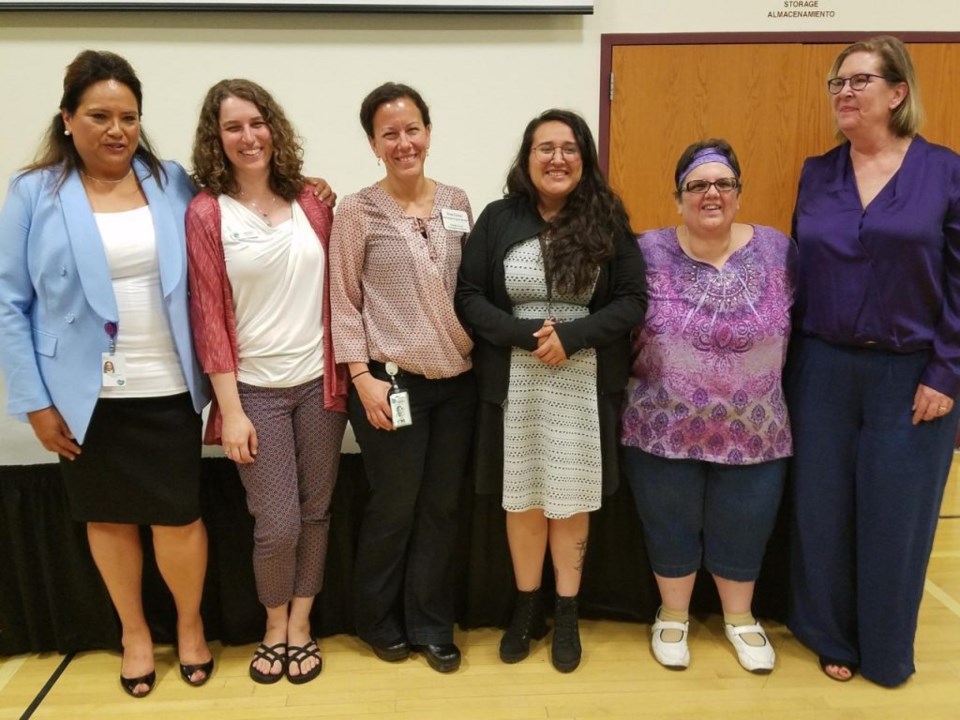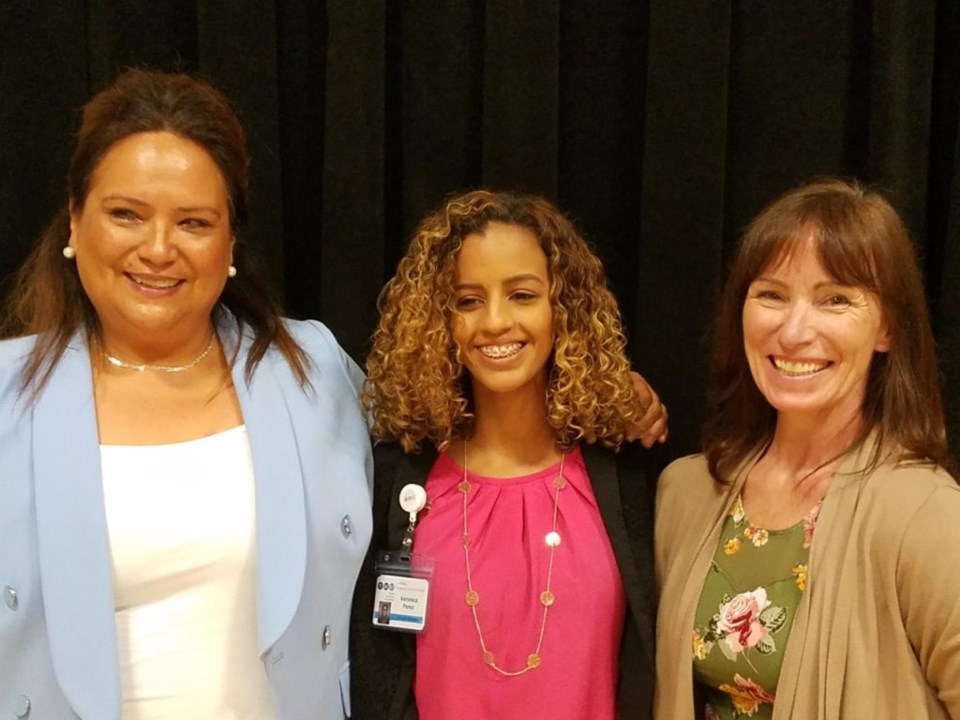This content was originally published by the Longmont Observer and is licensed under a Creative Commons license.
June 15th was World Elder Abuse Awareness Day and Boulder County held an event at the Longmont Senior Center to bring attention to this, describe how elder abuse is being addressed locally, and introduce and reward the people working for us on this issue.
Brandy Queen, the seniors counseling & resource education coordinator, introduced the proceedings to a full house of seniors and county workers involved in elder abuse issues. The first speaker was Erica Corson, who is the Long Term Care Ombudsman for the Area Agency on Aging. She described what is considered elder abuse, and it covers a wide range of situations, from financial to physical, from sexual to emotional, and can take place in the home, a care facility or in a shared living environment.

Erica shared national statistics, with an estimate that one in nine seniors over the age of 60 have experienced some type of elder abuse, around 5 million cases a year. But an extremely high percentage of experiences are just not reported. Like so many other “one on one” crimes, 90% of situations classified as elder abuse are perpetrated by someone known to the victim, and over half of them are female. They can be family members, home carers, neighbors or even nursing home employees.
Seniors, especially those living alone, need to be aware of how their capabilities have changed over the years, both physical and mental. And who do you ask for help when you need assistance? Building a network of “connections” is vital as the years go by. These can be close or distant, and range from family and close friends to state or local organizations and services. Longmont residents can call on the Senior Center, which will provide contacts at the Boulder County Area Agency on Aging or the County Adult Protection Services, as well as other governmental or non-profit entities. Better to be aware of the help a senior can get early on, rather than waiting for an emergency situation.
A panel discussion ensued, with four representatives of agencies dealing with seniors generally and at risk seniors in particular. Boulder County Chief Trial Deputy DA Adrian Van Nice explained that adults over the age of 70 are legally classified as “At Risk” and, as such, complaints of abuse are handled differently than for the population at large. In addition, the sentences for crimes with victims over 70 are automatically higher than those with younger victims. Frost Yarnell of the County Adult Protection Services deals with any residents over the age of 18 that are unable to self-protect. While her clientele is composed of a comparatively small percentage of vulnerable seniors, Frost recognizes that they are an increasingly important segment of the overall at risk population.
Master Police Officer, Detective Chris Merkle of the Longmont Police Department, stressed the collaborative approach essential between the various entities dealing with elder abuse. He said that reports filed with the Agency on Aging or other local organizations are passed on to the Longmont Police Department, which has a statutory obligation to take some action within 24 hours.
Guio Bravo, bilingual Medicare counselor at Boulder County Area Agency on Aging, described the Senior Medicare Patrol (SMP) that she is involved in. It is estimated that there is over $60 billion billed annually in fraudulent Medicare claims. SMP encourages seniors to always check their Medicare Explanation of Benefits forms and to question any charges that do not look familiar or legitimate. And not to be afraid to ask questions.
The difference between civil and criminal situations was also discussed. Emotional abuse is not classified as a crime, so cannot be directly handled by the Police Department or the District Attorney’s office. In response to a question on the floor about poor management practices and harassment at a senior housing facility, Adrian Van Nice recommended contacting the City of Longmont code enforcement department whose remit is to ensure public health and quality of life. Often a case of emotional abuse can segue into a criminal situation, but it first needs to be reported.
Nationally, financial crimes against the elderly are the leading form of abuse, with neglect being close behind. Van Nice pointed out that seniors are from the generation that always answered the phone, as that was the only way to find out who was calling. With the decline in landlines, seniors are being encouraged to wait for an unknown caller to leave a message, rather than entering into a conversation with a professional scam artist.
With neglect being an important type of elder abuse, Frost said that often self-neglect is a problem amongst the elderly. A family member, friend or neighbor will contact Protection Services with concerns about a senior’s living conditions. When the home is inspected, Protection Services makes a determination about any possible danger to either the occupant or to emergency services should they need access. As Frost said, people have the freedom to live in the way that they want, but the community should still be aware of possible self-abuse or neglect.
The panel members agreed that there are many resources available in Boulder County and Longmont to at-risk seniors and those who care for them and stressed that frontline service providers will contact the police department or the district attorney office should they believe a case of abuse is of a criminal nature. The network of those tasked with protecting at-risk seniors encompasses a wide breadth of people and organizations, and we all need to be aware of our social responsibility to the vulnerable.

The final event of the afternoon was to recognize those people working with at risk seniors for their outstanding work over the past year. Jacki Myers is the Senior Resource Consultant with the City of Boulder Senior Services, Tonia Elliot, who is a Supervisor with Adult Protection Services, and Veronica Perez, a social worker with Tru Pace Community Care. All award recipients stressed that they are each part of a team of hardworking and caring professionals, whose priority is to keep the elderly population among us safe from harm.

.jpg;w=120;h=80;mode=crop)
